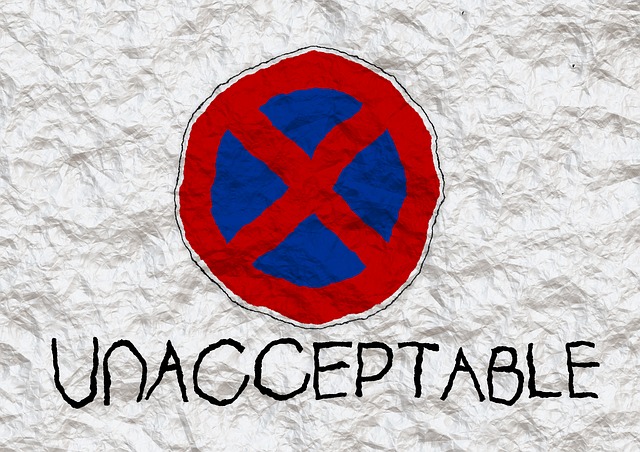
I am very openly willing to criticize the Israeli government. Two of my recent blog posts for New Voices have been criticisms of Israel’s Housing Ministry for announcing the constructions of new settlements at a crucial point in Israeli-Palestinian negotiations and Israel’s Prime Minister in condemning the announcement of negotiations between the United States and Iran. However, at every point where I criticize the Israeli government, I am careful (or, at least, try to be careful) in differentiating my criticisms of Israeli policy from my beliefs, as a Zionist, that the Jewish people have a right to a state in Israel.
To that end, my critiques of the Israeli government stop at my blog posts, and go no further. I can protest the actions of the Israeli government, and the officials who sign the documents allowing for those actions, but that in no way means that I do not support the State of Israel.
Ultimately, that is what stops me short of getting behind any sort of protest movement against Israel. I am not anti-Israel, nor am I fundamentally opposed to the Israeli government as an institution. I am simply critical of those who make the decisions within the Israeli government.
That is what keeps me from saying, in good conscience, that I can support any sort of movement to boycott Israel. I have heard the arguments for boycotting products sold from Israeli settlements in the West Bank. Despite my opinions against further settlement construction, I still personally find the movement troubling at best, since it does not get at the root of the problem—the Israeli government continually allowing settlers to move into the occupied territories.
Even more troubling is an academic boycott of Israel as part of a larger Boycott, Divestment, and Sanctions (BDS) movement, such as the one instituted by the American Studies Association (ASA) earlier this month. For a movement to boycott Israel, this one has gained considerably more attention than others. This is at least partially because a number of schools have decided to break their affiliations with the academic association following its announcement to boycott Israel, and has drawn criticism from many American Studies professors, including from the president and several professors in the American Studies department of my own Columbia University (a fact for which I am both grateful and somewhat surprised, given the fact that Columbia is known for being a hotbed for the boycott movement in general).
Perhaps another reason that the ASA’s decision has caused so much controversy is that the decision represents a fundamentally different type of boycott than merely vowing to not buy a product produced in Israel. This is not trying to hurt Israel financially; the goal is to stifle Israel intellectually. In so doing, this boycott has the potential to stifle a generation of young Israeli thinkers and university students.
It is important that the American Studies Association understands who will be affected by their boycott: it won’t be the Israeli government, whose policies the boycott movement opposes. The victims here are the universities, the institutions that are supposed to foster open dialogue about the issues pertaining to Israeli societies today. They are thus targeting not the source of their grievances — the supposed fact that Palestinian universities stifle academic freedom — but, instead, a group of people who, for the reason cited for the boycott, are probably in agreement with the ASA.
Moreover, this boycott will affect among students growing up in a world that is increasingly hostile to Israeli institutions, students who probably were raised with the belief that peace is possible, as can be seen in a study published last week that showed that an overwhelming number of Israelis believe that reforms in education can lead to a better understanding between Israelis and Palestinians. These students have been the beneficiaries of these sentiments, and are the ones who will have the tools needed to try and create a viable solution that end the violence that comes with the Israeli-Palestinian conflict, the most recent wave of which hit in the last two weeks.
When we talk about an academic boycott of Israel, we are talking about stifling the next generation of Israeli intellectuals who can — and, no doubt, will — be the voice for peace between Israelis and Palestinians. The message that the American Studies Association is sending is that, instead of encouraging Israeli university students, who will, one day, have the power to create that peace, they are not wanted. They are being told that the world does not want to hear from them, or reap the benefits of their intellectual curiosity, because of political decisions over which they had little control before now, simply because they were not yet old enough to voice those opinions or take action in a meaningful way. Now, this generation can have a voice, either through social action or through voting, but they are being told that their voice does not matter.
This message is integral to the BDS movement as a whole, and the message is clear: they are confusing a condemnation of the decisions made by the Israeli government with the desire to hurt those who have no control over the situation, and who are feeling the results of continued occupation of the Palestinian territories in ways that are probably far more real than I, or any other blogger sitting comfortably in America, can ever imagine. Rather than protesting the people whose policies they find problematic, the ASA is instead telling college students and young intellectuals, the next generation of people who will, one day, have the power to solve these problems, that their voice has no place in the world of academia, where, of all places freedom of discourse should be encouraged.
That is not a movement I can ever get behind.
Amram Altzman is a student at List College, a joint program between Columbia University and the Jewish Theological Seminary of America.
